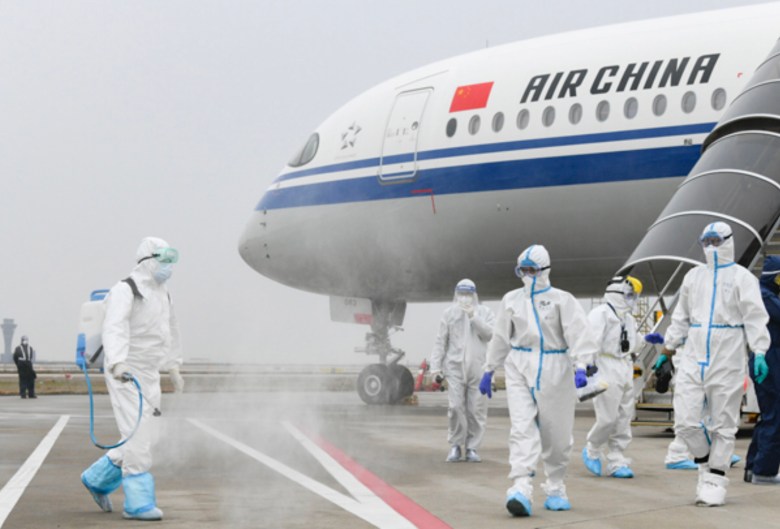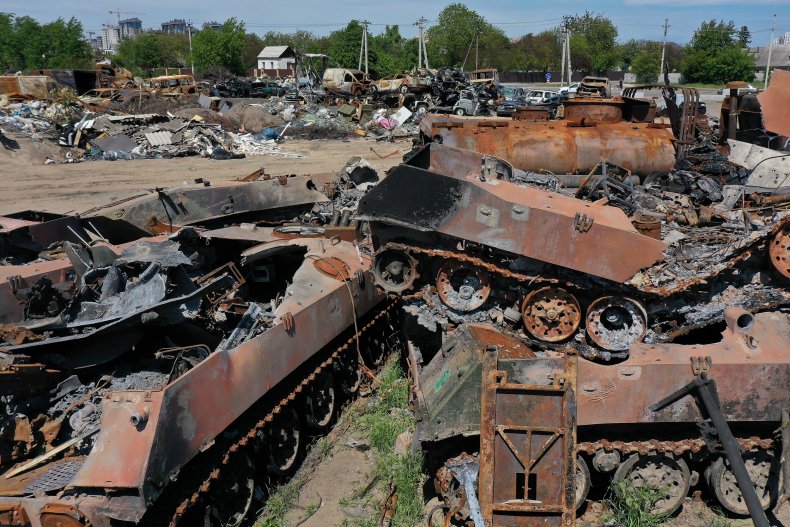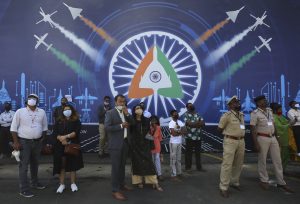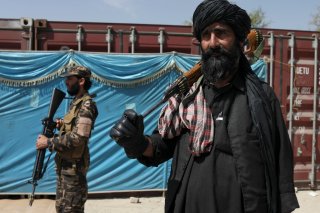JEFF PAO
China is discouraging its nationals from leaving the mainland – purportedly for anti-epidemic reasons, but many sense also aims to curb capital outflows. The move could have wide-reaching implications, including for neighboring countries hoping for a revival of outbound Chinese tourism.
The National Immigration Administration said on May 12 it would strictly limit Chinese who cannot show the necessity for leaving the country while also tightening the requirements to receive Chinese passports. It said the new policies were aimed at preventing people from bringing the Covid-19 virus back to China from overseas.
The official announcement came after some Chinese netizens complained that they had recently faced extra scrutiny by customs officers at international airports. Some reportedly saw officers cut the corners off of people’s passports and even the green cards of permanent residents of the United States.
In an equally hard turn, students can leave China only if they are destined for foreign universities, not primary or secondary schools. On Friday, customs authorities of Shanghai, Guangzhou and Beijing issued statements to dismiss what they referred to as “rumors.”
They said officers did not cut people’s US-issued green cards but at the same time stressed that they had the power to cancel travelers’ Chinese passports in accordance with the law.
After the global epidemic started in Wuhan in early 2020, the Chinese government was the first to tighten its travel policies, not only by limiting the number of incoming travelers with strict quarantine rules but also by reducing the issuance of Chinese passports or related travel documents.
Those moves are also in line with Beijing’s “dual circulation” drive, which encourages people to spend money locally to boost domestic consumption and fuel more indigenous economic growth.
Last July, the National Immigration Administration for the first time announced that “non-emergency and non-essential” cross-border movement of people would be limited.
 A team of health inspectors in hazmat gear disinfect an Air China jet at Shanghai Pudong Airport in 2021. The city continues to bear the brunt of the Chinese government’s ‘zero Covid’ policy. Photo: Xinhua
A team of health inspectors in hazmat gear disinfect an Air China jet at Shanghai Pudong Airport in 2021. The city continues to bear the brunt of the Chinese government’s ‘zero Covid’ policy. Photo: Xinhua
China would strengthen border entry and exit control to prevent the import of Covid-19 cases, Chen Jie, spokesperson of the National Immigration Administration (NIA), first said in a news briefing on July 30, 2021.
The NIA would not issue passports or entry-exit documents for non-essential reasons, he said. Applications with real needs such as studying, working or doing business abroad would be accepted in a timely manner, he added.
Since then, all outbound tourism has been stopped. Until now, however, Chinese with foreign passports, residency permits or working visas, as well as students with overseas school offers, could leave the country freely.
But the situation has changed since China was hit by the highly infectious Omicron variant in March this year.
Due to the lockdowns of key cities including Shanghai and Guangzhou in April, more and more middle-class families decided to leave China to avoid being affected by the quarantine measures, local media reported.
On April 27, Chen said the NIA would maintain its strict entry and exit policies in order to prevent the spread of the coronavirus. He said a total of 14.62 million people had left the country in the first quarter, down 5.9% from a year ago.
Chen’s comments were not widely reported by Chinese media until the NIA said on May 12 that it had held an internal forum on May 10 and ordered all customs authorities to strictly implement the country’s entry and exit policies. Meanwhile, more and more travelers said they faced extra scrutiny at airports.
One netizen said in a post on social media that a corner of his Chinese passport was cut by a customs officer after he said he would take an online language course, instead of a face-to-face one, in Canada.
Another Chinese man claimed customs officers at Shanghai Pudong International Airport had increased their efforts in scrutinizing outgoing travelers and had stopped some of those with foreign residency permits or large amounts of foreign currency from leaving.
Another claimed some people had their Chinese passports canceled by customs officers after their arrival at Guangzhou airport. These complaints, similar to many other alleged cases, could not be independently verified by Asia Times, but the reports caused some customs offices to respond.
 A passenger pushes her luggage to the check-in area at Beijing’s Daxing International Airport on July 12, 2021, as hundreds of flights were cancelled in the capital. Photo: AFP / Wang Zhao
A passenger pushes her luggage to the check-in area at Beijing’s Daxing International Airport on July 12, 2021, as hundreds of flights were cancelled in the capital. Photo: AFP / Wang Zhao
Guangzhou Customs said in a May 13 statement that it was untrue that one of its officers cut the corner off of a Chinese traveler’s US-issued green card. Shanghai Customs said it was impossible for a traveler to be barred from departing for France at the Shanghai Hongqiao International Airport, which has already suspended all international flights since March 25.
Beijing Customs said it was aware of a rumor that a “Chinese citizen’s passport corner was cut off without a reason.” Citing Article 67 of China’s Exit and Entry Administration Law, it said exit or entry documents that are forged, altered, obtained by fraudulent means or declared void by issuing authorities shall be invalid.
Still, the NIA said in a statement on May 13 that it was necessary to limit people’s departures from the country if they did not have necessary or urgent reasons to travel as the global pandemic had not yet ended. It said people could still leave the country for studying, working or doing business or visiting close relatives who are ill or to attend family funerals.
Some commentators said the tightening exit rules were aimed at slowing capital outflow as the Chinese currency has been on a significant downward trend since last month. Since April 18, the renminbi has depreciated by 6.24% to 6.79 against the US dollar due to the interest rate hikes in the US.
Just this week, the currency weakened an additional 1.8%. The Hong Kong dollar, which is pegged to a tight band of between 7.75 and 7.85 versus the US dollar, also fell to its weakest end, forcing the Hong Kong Monetary Authority (HKMA) to buy and support the unit on May 12.

 A team of health inspectors in hazmat gear disinfect an Air China jet at Shanghai Pudong Airport in 2021. The city continues to bear the brunt of the Chinese government’s ‘zero Covid’ policy. Photo: Xinhua
A team of health inspectors in hazmat gear disinfect an Air China jet at Shanghai Pudong Airport in 2021. The city continues to bear the brunt of the Chinese government’s ‘zero Covid’ policy. Photo: Xinhua A passenger pushes her luggage to the check-in area at Beijing’s Daxing International Airport on July 12, 2021, as hundreds of flights were cancelled in the capital. Photo: AFP / Wang Zhao
A passenger pushes her luggage to the check-in area at Beijing’s Daxing International Airport on July 12, 2021, as hundreds of flights were cancelled in the capital. Photo: AFP / Wang Zhao






 A pundit on Russian TV has said that the invasion of Ukraine is a “rehearsal” for future conflicts. In this picture, destroyed Russian armored vehicles are piled up on wasteland on the outskirts of Bucha, Ukraine on May 19, 2022.CHRISTOPHER FURLONG/GETTY IMAGES
A pundit on Russian TV has said that the invasion of Ukraine is a “rehearsal” for future conflicts. In this picture, destroyed Russian armored vehicles are piled up on wasteland on the outskirts of Bucha, Ukraine on May 19, 2022.CHRISTOPHER FURLONG/GETTY IMAGES


